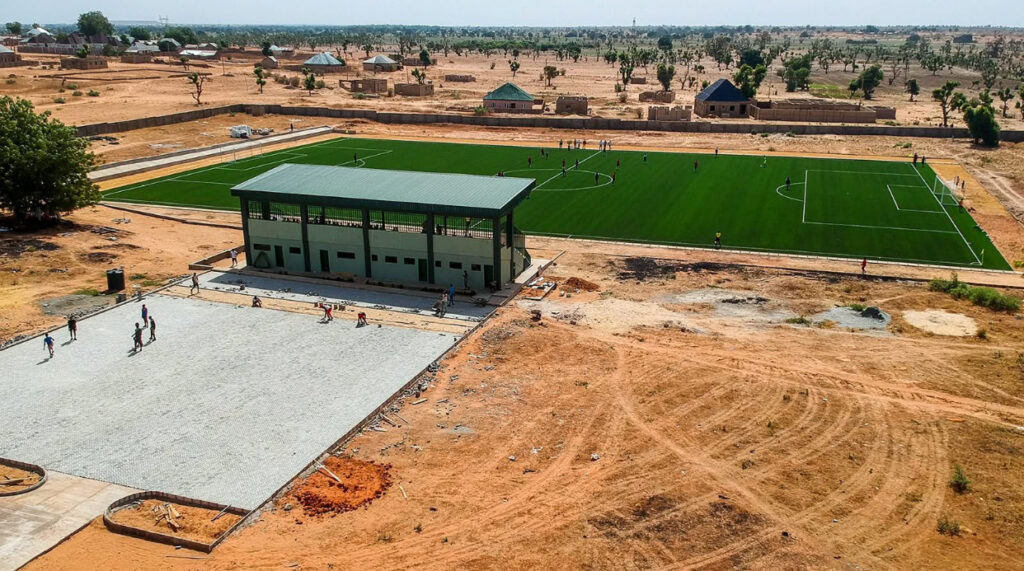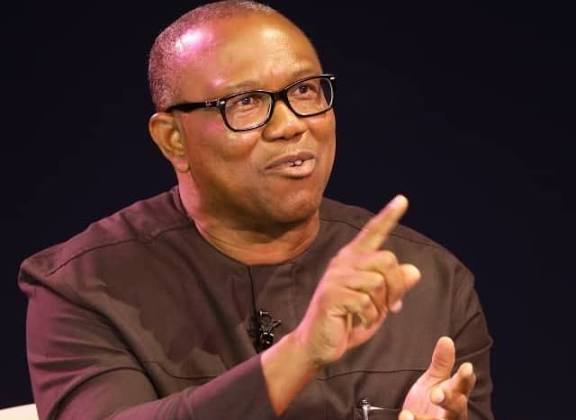Former presidential candidate Peter Obi has publicly accused Nigeria sports authorities of failing to deliver a promised FIFA-funded stadium in Anambra State, a project he claimed his administration allocated land for over a decade ago.
The allegation came through a social media post, which surfaced on X (formerly known as Twitter) on Monday, as Obi added his voice to the growing concerns over the financial mismanagement by the Nigeria Football Federation (NFF). Recent reports have alleged that the NFF misappropriated funds from FIFA, intended for grassroots football and infrastructure development.
Narrating the previously undisclosed episode, Obi revealed that during his tenure as Governor of Anambra State, officials from the “Sports Federation” informed him that the state capital had been selected as a beneficiary of a major FIFA initiative among the six geopolitical zones in Nigeria.
Obi revealed that the officials said that Anambra was “one of six geographical locations for the construction of a FIFA-standard stadium to be fully funded by FIFA.”
“We immediately allocated land for that purpose, and they assured us that the project would be executed through the Federal Ministry of Sports,” Obi stated. “That was the last we heard of it.”
The former governor expressed his disappointment, stating that his administration proceeded under the assumption the federal project was moving forward. This belief, he said, led them to channel state resources into building smaller, local stadiums to encourage grassroots sports development, such as the Chuba Ikpeazu Memorial Stadium and the Godwin Achebe Stadium in Onitsha.
“Nothing came of the promised FIFA project,” Obi lamented, framing the incident as a “blatant squandering of opportunities” for Nigerian youth.
He concluded by calling for a thorough investigation into the NFF, suggesting that a probe “will reveal even worse realities than what we currently know.”
The NFF, in a statement issued on Friday, has previously denied any financial misconduct. The federation asserted that all funds received from FIFA and the Confederation of African Football (CAF) are tied to specific purposes and are audited annually by external auditors, “under strict adherence to financial regulations, compliance, monitoring and auditing at every stage.”
Some Former Mismanagement Against NFF
The probe for transparency into NFF was ignited on Saturday, 25 October, after FIFA updated a 2023–image of Birnin Kebbi Stadium of Kebbi State as its social media cover picture—a project funded by the world football authority, in collaboration with Nigeria.

The image capturing a half–furnished stadium was reported to be valued at $1.2 Million, which formed part of the FIFA Forward Program, meant to support youth and grassroots football.
Meanwhile, the recent outcry pointed to the corruption bedridden running of the Nigerian football body, as the former administration of NFF have been marred with corruption allegations.
Aminu Maigari, the former president of the NFF, was dismissed in 2014, after a propelling accusation of funds mismanagement, misapplication and mal-administration. The preceding administration of Amaju Pinnick who ruled between 2014 and 2022, was also littered with similar allegations.
In 2015, Nigeria benefited from the FIFA Assistance Program, a fund slated for football development programs in the country. The funds were disbursed separately from May to October of the same year.
The spending of the grant raised eyebrows for FIFA board who condemned NFF for lack of transparency, stating that the NFF leadership was unable to prove that the funds were not fraudulently exploited. FIFA also mourned the fact that the funds were not used for the approved programmes.
The former president of National Association of Nigerian Footballers, Harrison Jalla, petitioned FIFA to investigate the secretary general of the NFF in 2018. He accused the then Secretary General of NFF, Sanusi, to have connived with Pinnick and the NFF Vice President, in misappropriating funds, embezzlement and abuse of position.
He further emphasized that the $8.4M World Cup participation fee paid to NFF in 2014, was massively diverted to personal gains by the aforementioned three individuals.
Tunde Aderibigbe, former head of protocol at NFF 2014-2018, also said that there were no papers of the contractual agreement entered into for the 16 friendly matches played. He added that there is no firm traceable record revenues pertaining to sponsorship, advertisement, broadcast rights, and ticket sales of the games. His allegations included that the NFF was in the habit of collecting funds from the federal government, state government, FIFA, and CAF for the same event.
The Special Presidential Investigation Panel on Recovery of Public Property (SPIP), established by the Federal Government to investigate the Glass House anomalies where the panel charged Pinnick’s administration with corruption and disappearance of $8.4M, paid by FIFA for participation in the 2014 World Cup and imaginary international friendly matches including failure to declare their assets.

